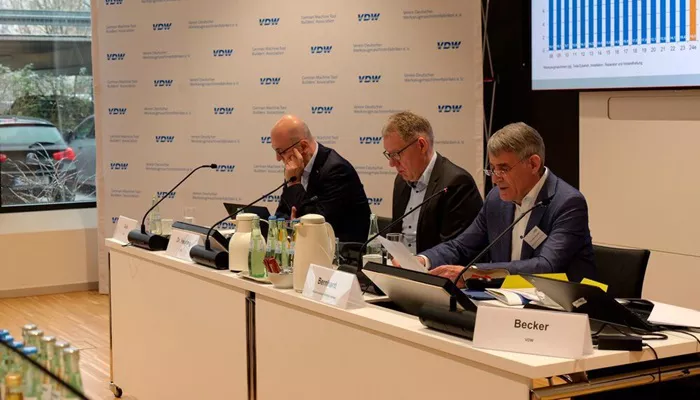For decades, German manufacturers have dominated the global machine tool industry in both production and exports. In 2024, Germany secured second place in production, trailing only China, while tying with China for the top spot in exports. Despite ongoing economic challenges, the sector remains resilient, investing approximately 3% of its turnover into research and development (R&D).
A key driver of this innovation is Germany’s robust research ecosystem. More than 50 internationally renowned research institutes at German universities provide a vast pool of top experts available for collaborative projects. Additionally, the industry benefits from a highly skilled and motivated workforce. By November 2024, the sector had grown its workforce slightly to around 65,300 employees.
“This flexibility allows companies to adapt quickly to changes in demand. It’s a strategy that has consistently proven effective, even during past economic downturns,” said Bernhard, a representative from the industry.
However, the sector is calling for stronger government support to maintain its competitive edge. Following the federal elections at the end of February, the new government must act swiftly to implement policies that foster economic growth. Key priorities include reducing bureaucratic hurdles, accelerating digitalization, lowering energy costs and taxes, improving education, and upgrading infrastructure.
Bernhard, who also serves as Chairman of the VDW (German Machine Tool Builders’ Association), highlighted the growing burden of regulatory compliance. “Laws like the Supply Chain Duty of Care Act, the Corporate Social Responsibility Directive (CSRD), the Cyber Resilience Act, and the European Deforestation Regulation are placing immense pressure on companies,” he explained.
Depending on their size, businesses are spending between 1% and 3% of their turnover on documentation alone. These resources, Bernhard emphasized, could otherwise be directed toward critical investments in innovation and growth.
As the German machine tool industry navigates these challenges, its ability to adapt and innovate continues to solidify its position as a global leader. Yet, the sector’s future success will depend heavily on supportive government policies and a favorable economic environment.

